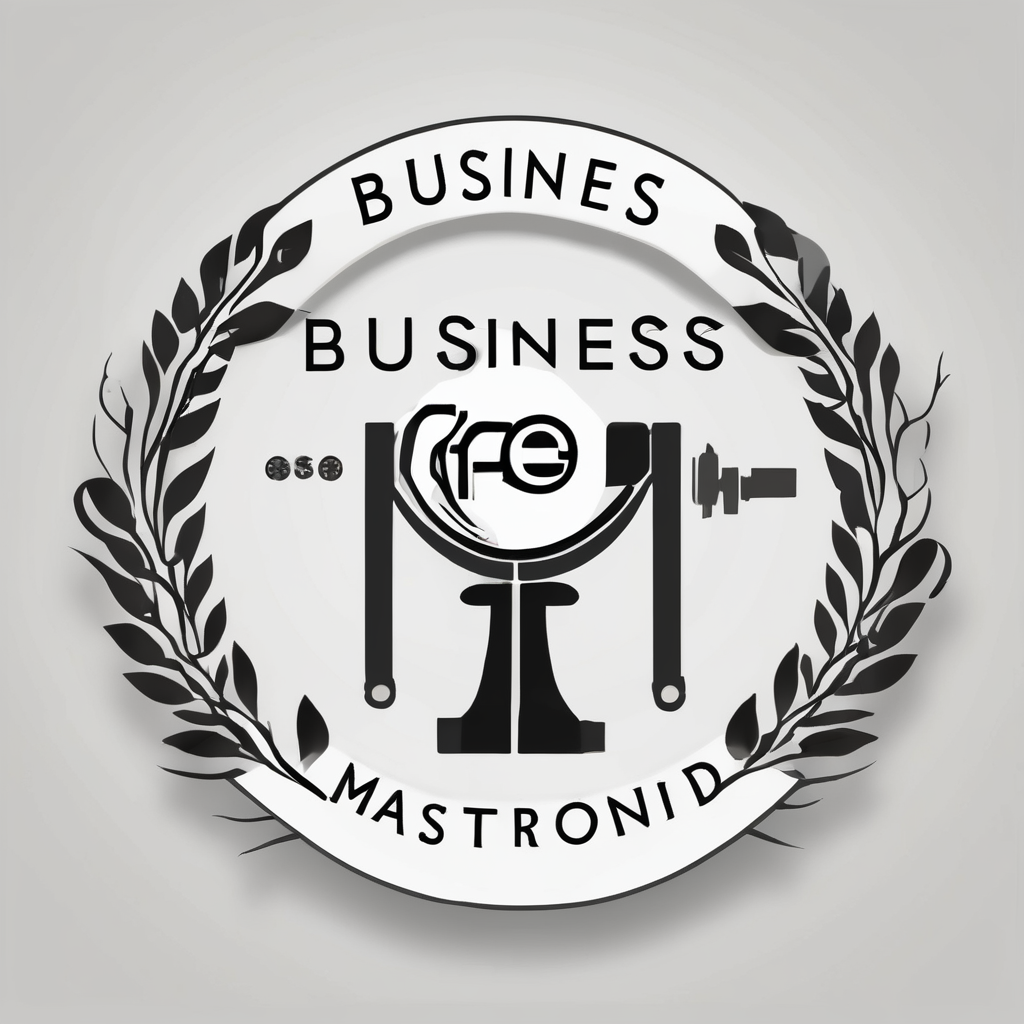Managing collections can be time-consuming and complex, but automation software transforms this process by handling reminders, prioritizing payments, and integrating smoothly with accounting systems. Solutions like Esker use AI to predict risks and optimize workflows, freeing teams to focus on critical cases. Discover how these tools boost efficiency, improve cash flow visibility, and tailor strategies to fit your business needs.
Automated Collection Software: Fulfilling the Demand for Streamlined Accounts Receivable Management
Within accounts receivable, digital transformation is accelerating. CashOnTime exemplifies this shift, providing robust debt collection software to automate payment reminders, centralize collection activities, and optimize cash flow for businesses of varying sizes. You can view more details on this page: CashOnTime.
In the same genre : Top Strategies for UK Pension Funds to Optimize Investments in Renewable Energy
Automated collection software serves as the technological backbone for modern financial operations. Its primary function is reducing manual interventions in collections by digitizing repetitive processes, like generating automated payment reminders, sending late invoice notifications, and compiling reconciliation reports. These tools seamlessly integrate with accounting or ERP systems, enabling real-time updates and all-in-one dashboards that simplify tracking overdue invoices.
Businesses adopting automation anticipate tangible efficiencies—they expect streamlined workflows, fewer administrative errors, and shorter collection cycles. Workflow automation reduces manual collections, freeing staff for higher-value activities, such as credit risk analysis or complex dispute management. With customizable templates, dynamic triggers, and integration capabilities, the entire collection process becomes more predictable and transparent.
Also to discover : Crafting a Winning Influencer Marketing Strategy for Fashion Brands in the UK: Your Ultimate Guide
Automating accounts receivable enhances cash flow management. Systems automatically identify late payments, segment high-risk accounts, and trigger escalating reminders as needed, minimizing days sales outstanding (DSO). By tracking key metrics through analytics dashboards, teams can make data-driven decisions to improve recovery rates and maintain customer satisfaction.
Adopting collection workflow software ultimately boosts productivity, supporting teams in handling greater volumes with fewer resources while strengthening control over financial processes.
Essential Features of Debt Collection and Receivables Automation Tools
AI-powered payment predictions and process prioritization
Debt collection software leverages AI-powered payment predictions to sharpen the accuracy of forecasts for incoming cash flows. By analyzing patterns in customer payment tracking and historical data, these tools can prioritize which overdue invoices should be addressed first. This approach enables collection process automation to target high-risk accounts, streamlining resource allocation and minimizing late payment notifications. Machine learning for debt collection supports dynamic workflows, empowering teams to improve collection agent productivity and attain measurable collection success rates while reducing days sales outstanding.
Customizable automation: workflows, reminders, and multi-channel notifications
Collection workflow software introduces customizable automation—enabling teams to tailor when and how automated payment reminders and late payment notifications reach clients. Users can automate dunning processes, set up payment schedule automation, and configure automated follow-up emails using personalized messaging templates. Multi-channel reminders ensure communication happens via email, SMS, or customer portals. This collection process optimization can significantly reduce manual collections, improve debt collection efficiency, and extend control with credit management tools.
Integration with accounting, ERP, and CRM platforms for seamless data flow
Receivables management software stands out by allowing direct integration with core financial systems. Linking the invoice tracking system to ERP and CRM platforms facilitates real-time payment status updates and avoids data duplication. This digital transformation in collections not only optimizes cash flow but also enhances accounts receivable management by reducing manual data entry, speeding up reconciliation automation, and boosting overall collection agent productivity.
Leading Automated Collection Software Solutions Compared
Esker: AI-driven risk analysis and full-cycle AR integration
Esker leverages AI in collections to predict payment risk and prioritize follow-ups, boosting debt recovery automation efforts. The platform enables finance teams to automate accounts receivable actions—such as scheduled payment reminders—freeing agents to manage high-risk cases. By centralizing post-sale data, Esker increases transparency, allowing seamless integration with ERP systems while delivering a robust collection analytics dashboard tracking DSO, Collection Effectiveness Index, and disputed items. These features ensure that organizations maintain control, improve cash visibility, and tailor collection workflow software to unique business rules.
Versapay: Unified cloud AR automation with advanced customer collaboration
Versapay unifies cloud-based collection tools and digital collection channels, automating every stage from invoicing to dispute resolution. Intelligent collection agent automation minimizes manual effort and ensures payment matching regardless of payment method. With direct integration into major ERP systems, the platform offers real-time updates and an automated reporting system. Customer self-service portals, automated notifications, and payment reminders enhance engagement, accelerate collection process automation, and help organizations reduce days sales outstanding.
Upflow: Streamlined AR workflows and real-time KPI dashboards
Upflow specializes in receivables management software that automates routine collection tasks while empowering cross-team collaboration. Automation software benefits here include real-time KPI dashboards, ready-to-use templates for automated dunning process, and customizable workflows for payment reminders. Integration with leading accounting and CRM platforms ensures prompt updates on outstanding invoices and overdue accounts, supporting digital transformation in collections with measurable improvements in cash flow and operational efficiency.
CashOnTime: End-to-end order to cash automation for diverse business sizes
CashOnTime covers the entire order-to-cash chain, specializing in comprehensive debt recovery automation for SMEs and large enterprises. The platform facilitates automated collection processes, including multi-channel reminders, late payment notifications, dispute management automation, credit risk assessment tools, and a dedicated customer portal. With flexible integration, CashOnTime ensures scalable cloud-based collection tools and delivers true workflow automation in finance, so organizations can maximize efficiency and optimize collections performance with full regulatory compliance.
Benefits of Automating Accounts Receivable and Collections
Operational advantages: time savings, fewer errors, and increased scalability
Automating accounts receivable means less manual data entry and fewer human errors, making collection agent productivity noticeably higher. Financial software automation allows for collection process automation—routine tasks such as sending automated payment reminders and late payment notifications are handled by the system, not your staff. Not only does this reduce manual collections, but it speeds operations and helps scale collection workflows as your business grows. Companies using collection workflow software and cloud-based collection tools find processes faster, more dependable, and easier to adapt for changing business needs.
Improved cash flow, faster payments, and reduced Days Sales Outstanding (DSO)
Cutting-edge receivables management software and debt collection efficiency tools optimize collections performance by streamlining communication with clients. Automated payment reminders and AI-powered payment predictions help reduce collection cycle times, ensuring invoices are paid quickly. These systems boost debt collection efficiency, directly impacting cash flow and helping reduce bad debt. Efficient accounts receivable management lowers DSO metrics, which positively influences company liquidity and planning.
Enhanced employee focus on complex, high-value recovery tasks
When financial software automation and workflow automation in finance reduce manual collections, employees can prioritize high-risk accounts and disputes. This increases collection agent productivity and supports collection process optimization—freeing talent for negotiation or customer relationship management. Using automation software benefits not just the finance team, but the entire organization by reallocating resources to higher-value challenges.
Advanced Capabilities: AI, Machine Learning, and Customization
Predictive analytics and payment risk assessment
Predictive analytics for debt recovery enables organizations to use AI in collections for dynamically assessing which accounts are likely to default, using customer payment history analysis and machine learning for debt collection. By analyzing invoice tracking system data and payment patterns, the intelligent collections platform delivers payment risk scores and AI-powered payment predictions. This supports credit control automation and allows for smart payment scheduling, guiding collection agents to focus on overdue invoice automation where it matters most. Integrating predictive analytics for debt recovery into receivables management software helps reduce days sales outstanding and optimize cash flow.
Automated dispute resolution and dynamic workflow adaptation
Automated dispute resolution, through machine learning for debt collection, eliminates manual intervention in common disputes and escalates exceptions via digital collection channels. Workflow automation in finance adapts dynamically by using collection workflow software to track dispute outcomes and tailor collection risk management strategies. This seamless adaptation maintains compliance in collections while leveraging customizable messaging templates and automated follow-up emails. As a result, businesses reduce manual collections effort and streamline dunning process efficiency.
Personalized outreach and real-time performance tracking
Personalizing customer outreach is critical for collection process optimization. Automated payment reminders, personalized using robust AI, boost collection agent productivity by delivering the right message via multi-channel reminders. Real-time collection updates and automated reporting system features provide live performance dashboards, boosting transparency and facilitating rapid responses to changes in payment plan software or debt portfolio management status. These intelligent tools reduce manual data entry, support data-driven decision-making, and optimize collections performance at every stage.
Security, Compliance, and Collaborative Collection Strategies
Ensuring enterprise-grade security and compliance with financial standards
Robust collection data security and strict compliance in collections are non-negotiable for any modern organization. Automate accounts receivable processes using audit trail for collections, ensuring every step of the collection process automation is documented and traceable. Automated compliance checks systematically verify adherence to regulations, helping companies reduce manual errors and mitigate risk in collection risk management. These controls protect sensitive customer data and support debt collection software requirements for privacy and integrity. With customizable permission settings, only authorized staff can access critical financial details, empowering secure and compliant operations across all workflow automation in finance.
Streamlined dispute management, audit trails, and traceability
Modern intelligent collections platforms bake traceability into every transaction. An audit trail for collections captures each action in real time, providing a historical overview necessary for compliance in collections. Automated dispute management features document interactions, flag unresolved items, and enable rapid escalation or resolution—improving transparency with both internal teams and external auditors. Automated reporting systems and collection analytics dashboards centralize access to payment status, dispute outcomes, and overdue invoice automation, enhancing oversight and accountability.
Enhancing internal and customer collaboration via portals and centralized information
Centralized collaborative management tools promote transparency and foster trust. Customer communication automation ensures timely, accurate updates through multi-channel reminders and automated payment reminders. Cloud-based collection tools facilitate real-time collaboration among collection agents, sales, and finance teams, simplifying workflow automation in finance and boosting overall debt collection efficiency. Through customer self-service payment portals, customers securely view and act on their accounts, streamlining the entire automated dunning process and making it easier to reduce manual collections.
Real-world Results and Case Studies on Collection Process Optimization
Improved recovery rates and collection benchmarks from major brands
Organizations using advanced collection workflow software frequently report higher collection success rates. For example, automation software benefits like intelligent collections platform tools and automated payment reminders enable teams to track and recover overdue invoices more efficiently. By leveraging automated payment processing and multi-channel reminders, businesses reduce bad debt and minimize the likelihood of missed payments.
Documented ROI, reduced DSO, and operational efficiency gains
Automating accounts receivable with cloud-based collection tools directly impacts Days Sales Outstanding (DSO). Collection process automation delivers real-time collection updates and actionable analytics on the collection analytics dashboard. These features help companies optimize cash flow, demonstrate tangible operational efficiency gains, and boost collection productivity. Businesses see reduced manual collections effort, improved reconciliation automation, and streamlined collection agent productivity as core advantages.
User testimonials highlighting process simplification and cash flow improvements
Debt collection software that integrates with CRM or ERP systems improves customer payment tracking and late payment notifications. Teams free up time, accelerate collections, and achieve better outcomes by automating follow-up emails and personalizing customer outreach. Transparent customer payment history analysis, along with customizable messaging templates, supports a more proactive collection strategy and further reduces bad debt.











